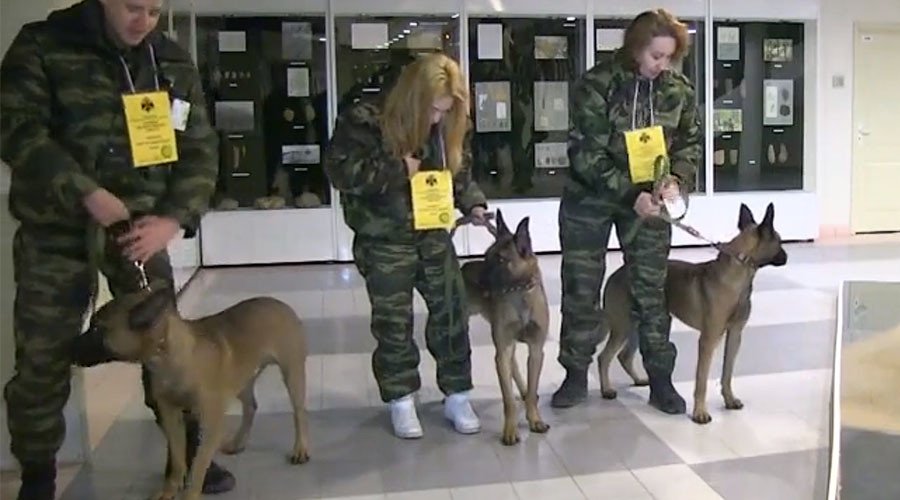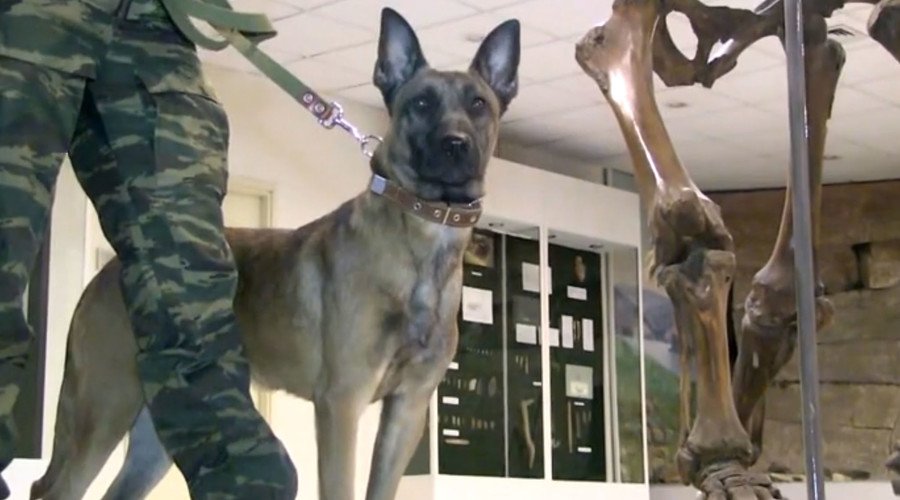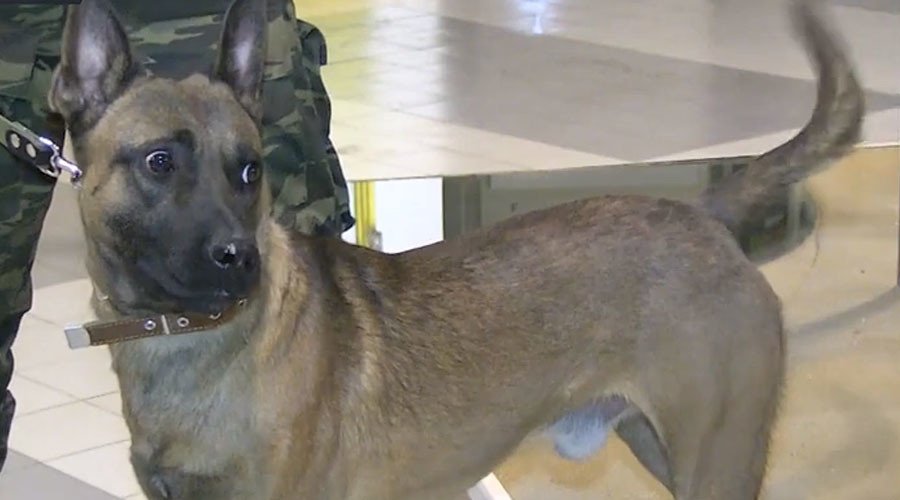Doggy doubles: Cloned canines to assist Russian police in Siberia (VIDEO)
Stronger, more muscular… and cloned – Russia has received its first lab-produced police dogs from South Korea. The canines were created from the cells of a sniffer dog, but will the new arrivals endure the Siberian winter?
Three dogs, cloned by Dr Hwang Woo Suk and his team from South Korea’s Sooam Biotech Research Foundation, one of the world’s leading dog cloning laboratories, arrived in Yakutsk, the capital of Siberia’s Yakutia Republic, on Monday.
The canines are Belgian Malinois, a breed of shepherd dog, and were cloned from the cells of South Korea’s most revered sniffer dog. The scientists claim the genetic duplicates inherited the adult dog’s unique abilities.
READ MORE: Real-life ‘Jurassic Park’? Siberian lab set to clone extinct mammals
The pups will soon be delivered to the Russian Military Historical Society, which works closely with the police.

"These are three male dogs: Tom, Mark and Jack, all are one year old. They feel good after the trip and have already been observed by the veterinarian. They have good appetite and play all the time,” Valery Chugunov, from the Russian Military Historical Society, told Interfax.
He added though that the canines haven’t yet adapted to the cold – temperatures in Yakutsk have recently hit -30C (-22F).
“When we released them for a walk, they instantly ran back. But I think they will get used to the [Russian] cold,” Chugunov said.
READ MORE: Ice Age Park? Russian, S.Korean scientists to clone woolly mammoth
The organization will keep one dog to search for “archaeological sites and old military graves,” Chugunov said, adding that the remaining two will be sent to the Yakutia police force.
According to Chugunov, the new arrivals are stronger and more muscular than dogs conceived naturally.

However, the four-legged future police assistants need to adapt to commands in Russian, as they currently only understand gestures.
The Sooam Biotech Research Foundation is “focused on advanced biotechnology for industrial and biomedical applications using animal cloning and pluripotent stem cells combined with transgenic technology,” according to the company’s website.
READ MORE: Recreating Rover: Clone firm lures UK dog owners with $70,000 discount
One of the company’s activities is dog cloning. Back in 2005, Dr Hwang Woo Suk’s team produced the first lab-created dog, which has since been followed by 500 puppies.
Not all of these cloned dogs are pets. The laboratory replicated the best military and police dogs to assist the South Korean police, and many cloned dogs successfully assist police forces in the US and China. Cloned animals are also used in South America.

Animal cloning is not allowed everywhere. In 2015, the EU Parliament banned the cloning of animals, including imports of their descendants. In a report, the EU Commission said that the health and welfare of clones were “adversely affected, often severely and with a fatal outcome.”












